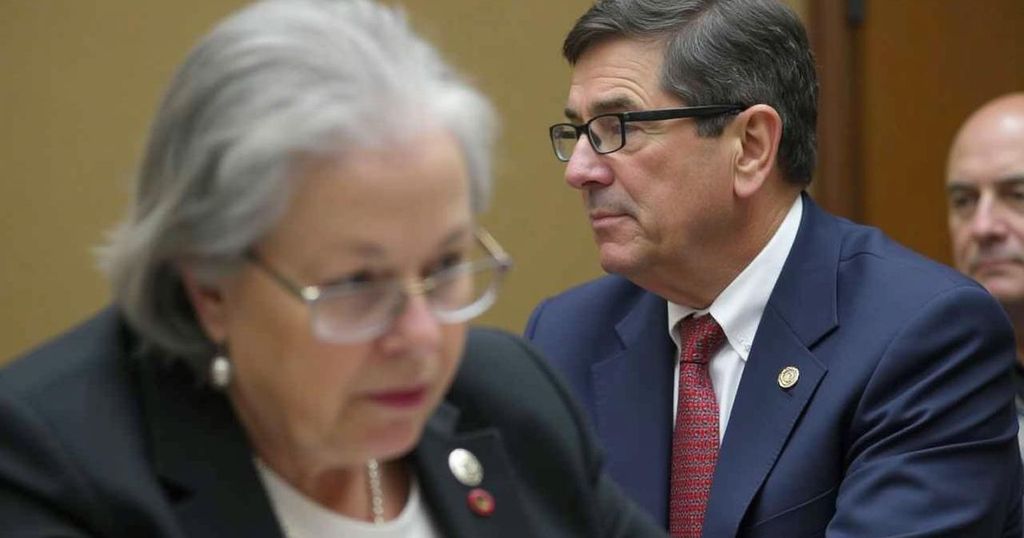U.S. Justice Department Sues Virginia Over Voter Purges Ahead of Election

The U.S. Justice Department has filed a lawsuit against Virginia alleging that the state improperly purged voters from registration rolls close to the presidential election. This legal action follows an executive order by Governor Glenn Youngkin that aims to verify voter citizenship but is claimed to violate the 90-day quiet period required by federal law. The controversy arises amidst broader national debates over voter fraud, with many asserting that such claims are unfounded.
The United States Department of Justice has initiated legal action against the state of Virginia, alleging improper voter purges conducted in close proximity to the upcoming presidential election scheduled for November 5. This lawsuit, filed on Friday, stems from an executive order issued in August by Virginia’s Republican Governor Glenn Youngkin, which directs the removal of individuals from voter registration rolls if their citizenship status cannot be verified through the state’s Department of Motor Vehicles. The Justice Department contends that this executive order violates the National Voter Registration Act, which mandates a 90-day quiet period prior to a federal election, during which systematic voter removals are prohibited. Assistant U.S. Attorney General Kristen Clarke emphasized the importance of safeguarding qualified voters, stating, “The right to vote is the cornerstone of our democracy and the Justice Department will continue to ensure that the rights of qualified voters are protected.” Governor Youngkin, defending his actions, insisted that the order complied with legal guidelines and characterized the lawsuit as a politically motivated attack aimed at undermining the integrity of elections in Virginia. He remarked, “Virginians – and Americans – will see this for exactly what it is: a desperate attempt to attack the legitimacy of the elections in the Commonwealth, the very crucible of American Democracy.” The lawsuit highlights the ongoing debate among states, particularly among Republican officials, surrounding voter fraud allegations, particularly regarding noncitizen voting, which remains a contentious and largely unfounded claim. Nationally, only citizens are permitted to vote, and any assertions indicating otherwise have been thoroughly rebutted by organizations such as the Brennan Center for Justice, which noted that noncitizen voting is exceedingly rare and had no significant impact on previous elections, including a comprehensive analysis of the 2016 general election that flagged merely 30 votes out of 23.5 million cast for suspected noncitizen voting. As states prepare for the 2024 elections, similar restrictions have emerged across the country, which some experts warn may disenfranchise eligible voters by imposing unnecessary hurdles regarding proof of citizenship.
This article addresses the recent move by the U.S. Justice Department to sue Virginia over its implementation of an executive order that facilitates the removal of voters from registration rolls based on citizenship verification. The backdrop of this story involves ongoing national concerns about voter fraud, predominantly surrounding noncitizen voting, which has been largely discredited by numerous studies. The legal actions taken by the Justice Department underscore the importance of maintaining electoral integrity and protecting voter rights under federal law.
In conclusion, the lawsuit filed by the U.S. Justice Department against Virginia highlights critical concerns related to voter purging practices and the protection of electoral rights. With debates around voter fraud resurfacing, particularly among Republican factions, this legal challenge seeks to uphold the legislative safeguards established by the National Voter Registration Act. The outcome of this case may have broader implications for voter registration policies nationwide, especially as the 2024 presidential election approaches.
Original Source: www.aljazeera.com







